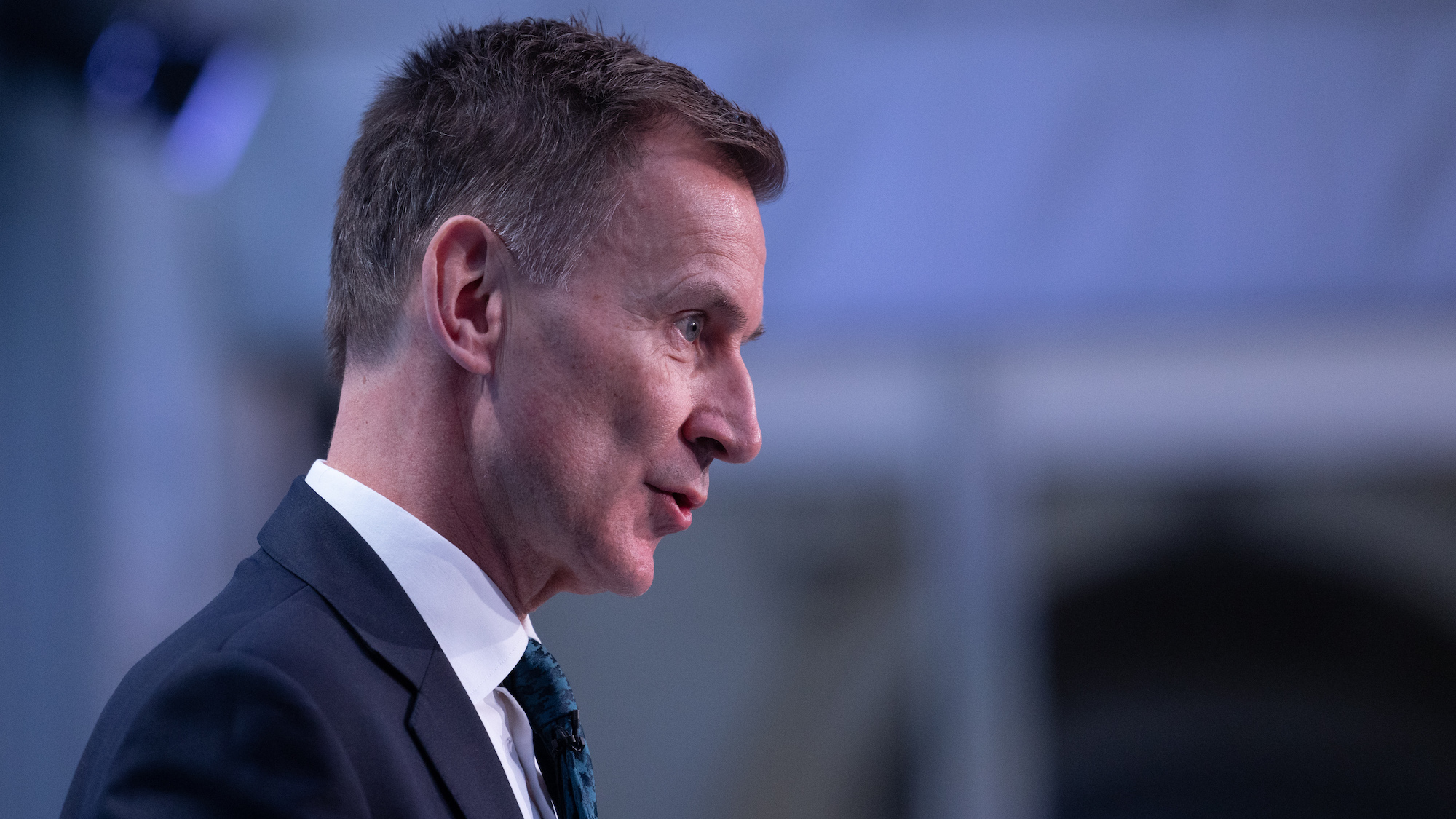A blueprint to end stagnation: five ways to revive the UK economy
Think tank's report advocates for greater public spending and a rise in benefits to tackle inequality

A free daily email with the biggest news stories of the day – and the best features from TheWeek.com
You are now subscribed
Your newsletter sign-up was successful
The next general election could well be decided by economic policy – which may explain why Chancellor Jeremy Hunt and Labour leader Keir Starmer were both at the launch of a new report on the state of Britain's economy.
The document, from the influential Resolution Foundation think tank, concluded that "Britain's economy is broken", wrote Larry Elliott in The Guardian. But while that may be the "simple message" to draw from the 291-page report entitled "Ending Stagnation", it also makes a string of recommendations to revive the country's struggling economy.
It is a "sensible document" and a "useful checklist", said Ed Conway at Sky News. And many of its conclusions will feel "vaguely familiar to anyone who has followed the economic debate in recent years".
The Week
Escape your echo chamber. Get the facts behind the news, plus analysis from multiple perspectives.

Sign up for The Week's Free Newsletters
From our morning news briefing to a weekly Good News Newsletter, get the best of The Week delivered directly to your inbox.
From our morning news briefing to a weekly Good News Newsletter, get the best of The Week delivered directly to your inbox.
Lift public investment
Britain is not consistently investing in public services well enough, and living on a "feast and famine" approach, said the report.
Public sector investment is "too volatile" and "prevents forward planning", which in turn creates greater challenges and costs to tackling issues further down the line. The Resolution Foundation accused Britain of "short-termism" when it comes to public spending and said it has been "ignoring the value of assets on the public sector balance sheet".
The average OECD country invests 50% more than Britain in public services, the report said, and it recommends that the government switches to a sustained 3% of GDP and concentrates on "improving the quality, not fiddling with the quantity, of public investment".
Create better, higher taxes
Taxes in Britain are at their highest level since the 1940s. The report calls the current system "incoherent" and said that the increasing tax burden cannot continue to "fall disproportionately on employees". Tax instead should be taken from "income consistently whatever its source".
A free daily email with the biggest news stories of the day – and the best features from TheWeek.com
To that end, the foundation suggests pushing up "unjustifiably low rates" for high earners and cutting the highest marginal rates, which can result in some parents having their child benefit "taxed away".
It also recommends reforming wealth tax, council tax and inheritance tax, as well as tax on electric vehicles. It claimed its measures would generate revenues of 1.3% of GDP by the end of the next decade and create "better, not just higher, taxes".
Raise benefits to tackle inequality
The report said that markets and jobs cannot ensure that growth "automatically boosts the living standards of the whole population". So Britain's social security system needs to be revamped to ensure people, such as those who care for the disabled, do not live in poverty.
It criticised the drop in living standards for the poorest since 2010 with benefits rising in line with prices, rather than faster-growing wages. Ultimately, it said, benefits must grow in line with wages if inequality in Britain is to fall.
Claims that higher benefits will "harm work incentives are overdone", it said, and while the costs of increases "are real", it suggests scrapping the triple lock on pensions and raising them in the same way as working-age benefits would cover those costs.
Invest in Birmingham and Manchester
Britain is not capitalising on its service-dominated economy by failing to transition cities "deeply scarred by deindustrialisation". With most of Britain's surplus concentrated in London, the foundation said that Birmingham and Manchester must now "take centre stage" to enable the country to prosper.
It advocates for government funding to expand the city centres of both cities, as well as investment to add "over 160,000 additional high-skilled workers" to each area. It also said that billions must be invested to expand transport networks, which is particularly pertinent following the scrapping of the HS2 line to Manchester.
The report does acknowledge that rapid expansion and subsequent "higher local inequality" will be difficult to digest for those already living there, but said each must have "empowered local leadership" to manage the disruption and reinforce "genuine fiscal devolution".
Better pay for hospitality earners
Increasing the pay of low earners in a "crucial" market like Britain's hospitality sector will make it a fairer country.
The majority of growth in low-paying sectors since 2008 came from hospitality, the report found, with the "proportion of total consumption that hospitality represents" greater in the UK than throughout Europe. This is because it is relatively cheap to consume.
The report suggests improving pay and conditions of workers will wholly benefit them, while richer households, who consume "a larger share of their budgets on face to face services", will experience the effect of subsequent price rises. This demonstrates how improved "labour market conditions" will ultimately "make Britain a fairer country".
Richard Windsor is a freelance writer for The Week Digital. He began his journalism career writing about politics and sport while studying at the University of Southampton. He then worked across various football publications before specialising in cycling for almost nine years, covering major races including the Tour de France and interviewing some of the sport’s top riders. He led Cycling Weekly’s digital platforms as editor for seven of those years, helping to transform the publication into the UK’s largest cycling website. He now works as a freelance writer, editor and consultant.